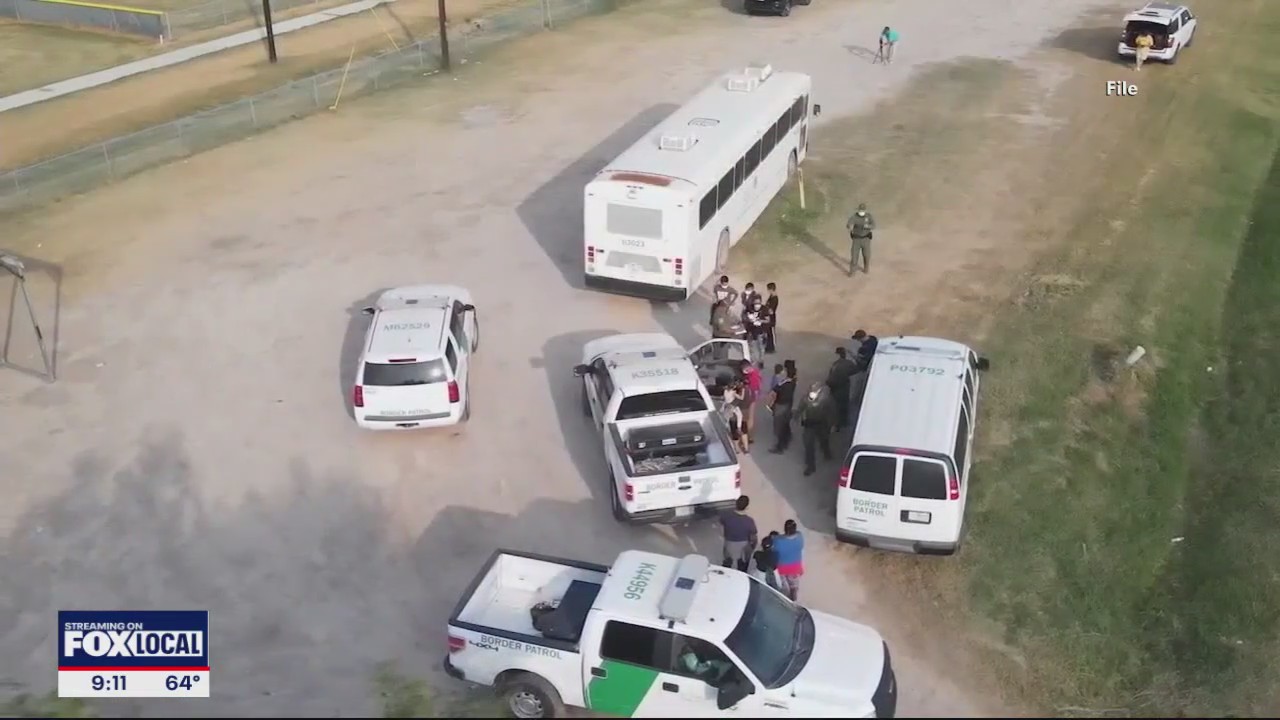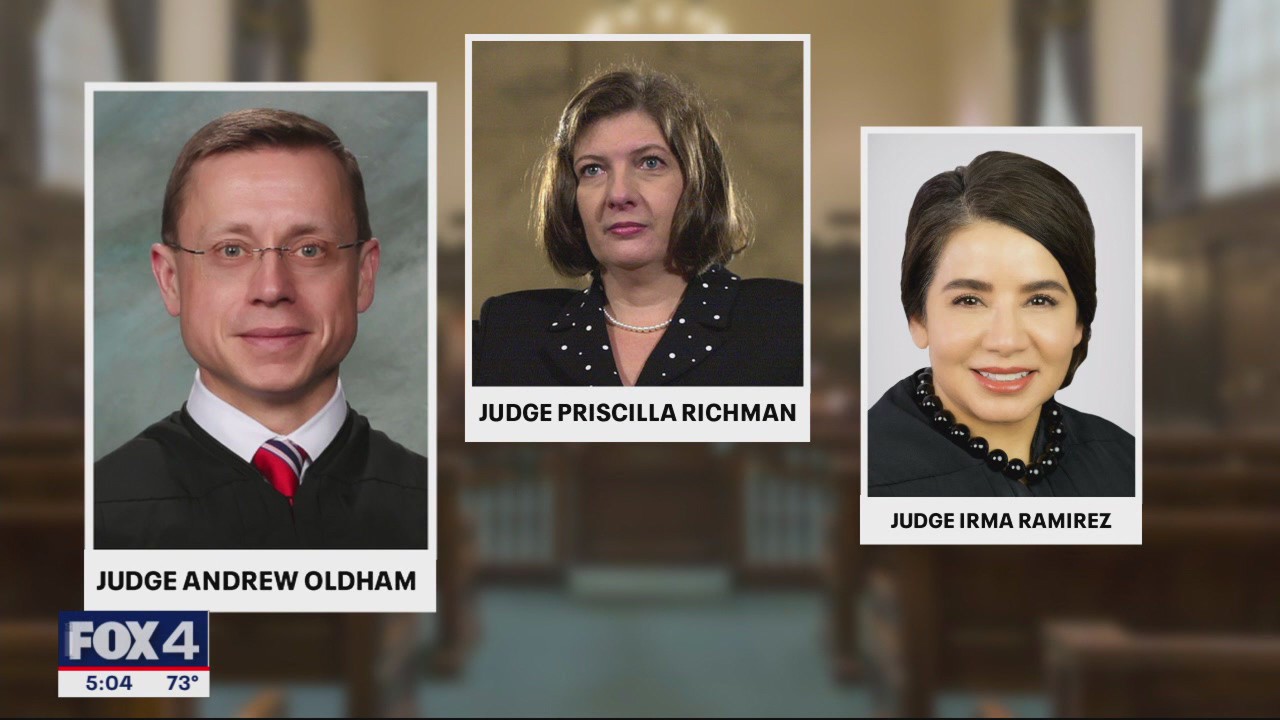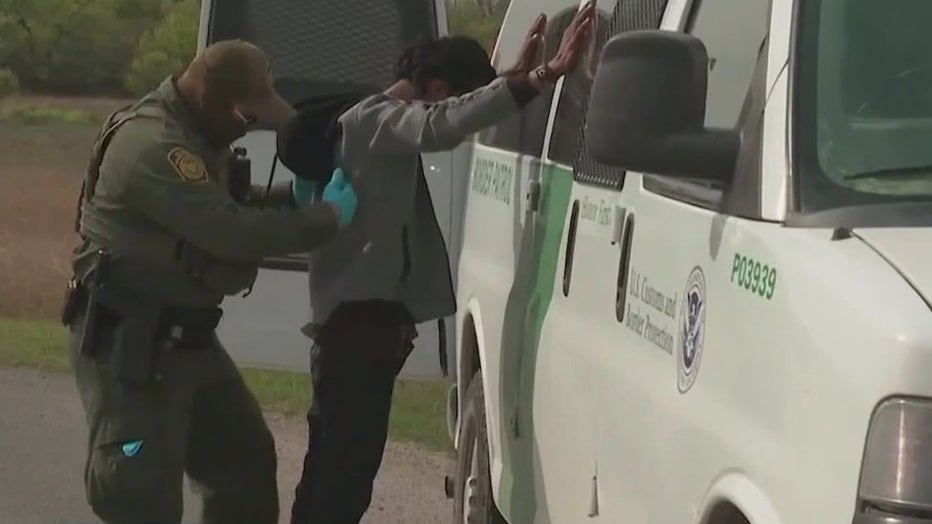Texas immigration law heads back to federal court

Texas immigration law heads back to federal court
The State of Texas is fighting to enforce its new law that would allow police to arrest anyone suspected of being in the U.S. illegally.
A federal appeals court heard arguments on Wednesday over Texas' Senate Bill 4, a controversial immigration law that clashes with the role of the federal government.
The state is fighting to enforce its new law that would allow police to arrest suspected illegal border crossers.
The Biden administration and immigrant rights groups are suing to block it, saying it interferes with federal immigration law.
The Fifth U.S. Circuit Court put the law on hold, but it went through legal whiplash last month, going into effect briefly, before court actions put it on ice.
It was a more substantive hearing Wednesday on the law's legality long-term, but even it might just be a precursor to a Supreme Court case.
The court features a three-judge panel: a Biden appointee, a Trump appointee and a George W. Bush appointee.

PREVIOUS COVERAGE: Appeals court blocks enforcement SB4 once again
Just hours after the U.S. Supreme Court said Texas can enforce its SB4 border law, the 5th U.S. Circuit Court of Appeals panel hearing arguments on the merits of the law temporarily blocked it again.
At the heart of the court battle is whether state and local law enforcement can arrest people accused of entering the country illegally when immigration has long fallen on the federal government's purview.
"What Texas has done here is they have looked at the Supreme Court's precedent and they have tried to develop a statute that goes up to the line of Supreme Court precedent, but allows Texas to protect the border," Texas Solicitor General Aaron Nielsen said. "Now, to be fair, maybe Texas went too far. And that's the question this court is going to have to decide."
A healthy part of the debate focused on part of the law that addresses removing someone suspected of being in Texas illegally.
The state insisted it would not be deporting people, simply taking them to a port of entry and letting the federal government act next.
Federal lawyers argued that's not what the law says.
Constitutional law attorney David Coale notes the removal part of the law might be more likely to conflict with the federal government's job.
"The parts of it that involve taking people in and out of the country are about as, or immigration federal, as you can imagine. And that ties into conduct of foreign policy, ties into treaties, or ties on national defense," he explained. "And that pretty much has to be the core of whatever it means to have a federal immigration policy. But the farther away from that you start moving. Well, the argument gets a little bit weaker."

Texas' solicitor general pointed out parts of the law could remain, even if the court strikes other aspects down.
"Just saying the same thing over and over again was going to get the exact same opinion he got two weeks ago, a two to one majority against him," Coale said. "Back up a little bit, refocus and try to get out of there with something that Texas is going to begin enforcing while it considers going to the Supreme Court on whatever else may not be enforceable."
It's not clear when the Fifth Circuit will rule, but Coale said it could be a couple of weeks, months, or perhaps longer.
People who have watched the proceedings closely believe the court tipped its hand on what they plan to do.
"Two of the three judges said they thought the case looked like it was controlled by existing Supreme Court authority," said Coale.
The Supreme Court in 2012 struck down key parts of an Arizona law that would have allowed police to arrest people for federal immigration violations, often referred to by opponents as the "show me your papers" bill.
No matter the decision by the Fifth Circuit, the case is expected to be appealed to the Supreme Court, which has moved to the right since the 2012 ruling.
The Supreme Court briefly let the law take effect last month, before extending a block on the bill.
A dissenting opinion in the 2012 decision by Justice Antonin Scalia could hold more weight with the new court.
"Our Supreme Court is much more in line with the way Justice Scalia saw things," said Coale.
The case is unfolding as record numbers of asylum seekers arrive in the United States and immigration emerges as a central issue in the 2024 election.

